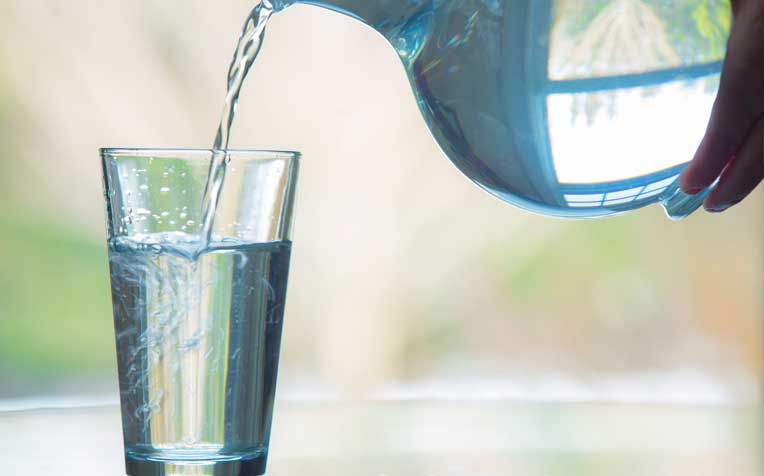During clinical practice, healthcare professionals always emphasize the importance of drinking plenty of water for cancer patients undergoing chemotherapy. So, is it necessary for cancer patients to drink more water during chemotherapy? How much is appropriate? This is a common but crucial question that cannot be ignored.
I. Why Drink More Water During Chemotherapy?
1. Reduce the Risk of Dehydration from Nausea and Diarrhea
During chemotherapy, cancer patients may experience side effects such as nausea, vomiting, and loss of appetite. Severe vomiting and diarrhea can lead to dehydration and even electrolyte imbalance. Increasing water intake helps replenish the body's needed fluids and alleviates dehydration caused by gastrointestinal reactions.
2. Minimize Damage to the Kidneys and Urinary System
Chemotherapy drugs produce metabolic byproducts that can damage the kidneys. Insufficient water intake reduces the amount of urine to help eliminate these byproducts, potentially leading to blockage of the renal tubules and impairment of kidney function. Drinking more water increases metabolism, facilitating the smooth elimination of metabolic byproducts and reducing the occurrence of kidney failure and renal impairment.
3. Prevent Tumor Lysis Syndrome
Some patients may experience rapid tumor lysis during chemotherapy, leading to the release of uric acid, potassium, phosphorus, and other metabolic byproducts. If these substances exceed the kidney's excretion capacity, resulting in high concentrations in the blood, it can cause severe complications such as kidney failure and metabolic acidosis. Drinking more water helps dilute these byproducts and facilitates their excretion through urine.
II. How Much Water Should Chemotherapy Patients Drink Each Day?
So, how much water should chemotherapy patients drink each day? There is no fixed standard for water intake during chemotherapy because everyone's body condition and chemotherapy regimen are different. Generally, most patients are advised to drink about 2000-3000 milliliters of water daily during chemotherapy, roughly equivalent to around 10 glasses of water (the general recommendation for "8 glasses of water a day" for ordinary people). However, this amount should be adjusted according to the specific conditions of the patient, such as weight, sweating, urine output, blood pressure, heart rate, etc. If the patient has conditions such as heart failure or renal insufficiency, the water intake should be appropriately reduced; if the patient experiences severe vomiting or diarrhea, they should drink more water accordingly.
III. How to Choose the Method and Type of Drinking Water?
During chemotherapy, it is advisable to drink water in small amounts multiple times, about 150-200 ml each time, with intervals of 30-60 minutes. This not only replenishes fluids but also does not excessively burden the heart and kidneys.
It is recommended to drink warm boiled water, plain water, or slightly salted water, and avoid drinking large amounts of cold or icy water to reduce stimulation to the gastrointestinal tract. Patients using oxaliplatin, in particular, should avoid drinking cold water.
It is not recommended to substitute plain water with coffee, strong tea, and other beverages. These caffeinated beverages can affect iron absorption and stimulate nerves, affecting rest. Carbonated beverages with high sugar content can exacerbate kidney burden when consumed in large quantities over a long period.
If plain water is unappealing, you can add a moderate amount of honey, lemon juice, or wolfberry to it to enhance taste and nutrition. Alternatively, you can choose low-sugar freshly squeezed fruit juice, vegetable juice, etc., to supplement vitamins and minerals.
IV. Is it Necessary to Drink More Water Before and After Chemotherapy?
In addition to the amount of water consumed, timing is also important. Start replenishing fluids 2-3 hours before chemotherapy to ensure adequate hydration, which can reduce kidney damage from chemotherapy drugs. If there are oral chemotherapy drugs, they can be taken with a small amount of plain water to avoid affecting absorption. During chemotherapy, it is necessary to drink water scientifically based on the specific regimen and medication situation; for example, cyclophosphamide requires increased water intake during infusion to promote excretion and reduce bladder damage. Within 24 hours after chemotherapy, maintaining a fluid intake of at least 200 ml per hour can help the body eliminate toxins and alleviate adverse reactions.

